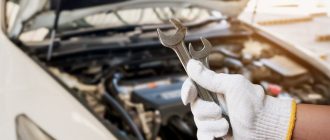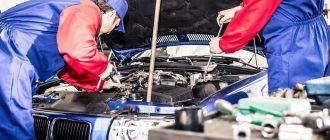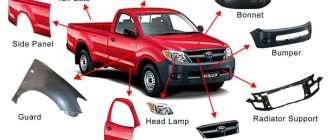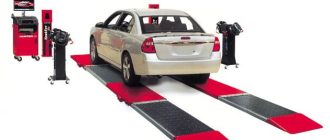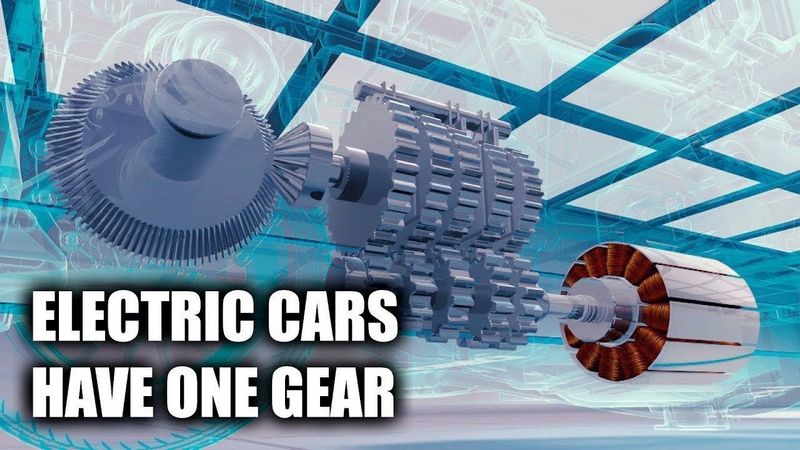
Why Do Electric Cars Need Specialized Body Repairs?
When it comes to electric cars, it’s no secret that they are the future of transportation. They offer numerous benefits such as reduced emissions and improved fuel efficiency. However, with all their advantages, electric cars also come with unique maintenance and repair needs that differ from traditional internal combustion engine vehicles.
One area where electric cars require specialized attention is their body repairs. Unlike conventional cars, which mainly focus on repairing mechanical components, repairing the body of an electric vehicle demands a specific skill set and knowledge. This is primarily due to the unique construction of electric cars, which often involves lightweight materials and complex electrical systems.
So, what exactly do electric cars need when it comes to body repairs? Well, one crucial aspect is the knowledge and understanding of how electric vehicles function. Body repair technicians must be well-versed in the intricate electrical systems and high-voltage components found in electric cars. This is essential to ensure that repairs are carried out safely and effectively.
Additionally, electric cars often feature lightweight materials such as aluminum or carbon fiber to maximize their range and improve efficiency. While these materials offer benefits such as increased fuel efficiency, they also require specialized techniques and tools for repairs. Technicians must have the necessary skills to work with these materials and ensure that the structural integrity of the vehicle is maintained.
In conclusion, electric cars require specialized body repairs due to their unique construction and components. Repair technicians must possess knowledge of electric vehicle systems and have expertise in working with lightweight materials. By understanding these specific requirements, owners can ensure that their electric cars receive the necessary repairs and maintenance to keep them in top shape.
Electric vs. Conventional Vehicles: Key Differences
When it comes to the world of automobiles, electric cars have been growing in popularity due to their eco-friendly nature and lower operating costs. However, there are several key differences between electric vehicles (EVs) and conventional vehicles that potential owners should be aware of.
- Power Source: The most obvious difference between electric and conventional vehicles is their power source. Electric cars are powered by electricity stored in a battery, while conventional vehicles are powered by fossil fuels such as gasoline or diesel.
- Range: Another crucial difference is the range of the vehicles. Electric cars generally have a limited range due to the capacity of their batteries. On the other hand, conventional vehicles can be refueled quickly and have a much longer range.
- Charging Infrastructure: Electric cars require a specialized charging infrastructure, which is still developing in many areas. Conventional vehicles have a well-established and widespread refueling infrastructure, making them more convenient for long trips.
- Environmental Impact: One of the main reasons why electric cars are gaining popularity is their reduced environmental impact. EVs produce zero tailpipe emissions, helping to combat air pollution and reduce greenhouse gas emissions. Conventional vehicles, on the other hand, contribute to air pollution and climate change through their exhaust emissions.
- Maintenance: Electric cars have fewer moving parts compared to conventional vehicles, resulting in lower maintenance costs. They typically require less frequent maintenance and have fewer parts that can break down. However, specialized repair services may be necessary for electric vehicles due to their unique body construction and high-voltage systems.
In conclusion, electric cars differ from conventional vehicles in terms of their power source, range, charging infrastructure, environmental impact, and maintenance requirements. While electric cars offer numerous benefits, it is essential to consider these differences before making a decision.
Understanding the Unique Challenges of Electric Car Body Repairs
Electric cars are revolutionizing the automotive industry, offering numerous benefits such as reduced emissions and lower operating costs. However, these vehicles also come with unique challenges when it comes to body repairs.
Why do electric cars need specialized body repairs? The answer lies in their construction. Electric cars feature a complex network of high-voltage cables, battery packs, and sensitive electronics, which necessitate specific knowledge and skills to repair properly.
Traditional body repair techniques are not sufficient for electric cars due to the potential risk of electric shock and damage to the sensitive components. Technicians need to have a thorough understanding of the unique electrical systems and safety precautions to prevent any accidents.
Another challenge in electric car body repairs is the availability of specialized parts. Electric cars have different body structures compared to traditional combustion engine vehicles, necessitating specific components designed to accommodate the unique requirements of electric cars. These specialized parts may not be readily available, leading to longer repair times and higher costs.
Moreover, the materials used in electric car bodies also differ from those in conventional vehicles. For example, electric cars often incorporate lightweight materials such as carbon fiber to enhance fuel efficiency and increase range. Repairing these materials requires specialized tools and techniques.
In conclusion, the unique challenges of electric car body repairs stem from the intricate electrical systems, the need for specialized parts, and the use of lightweight materials. To ensure the safety and proper functioning of electric cars, it is crucial to rely on technicians with specialized knowledge and skills in handling these repairs.
The Importance of Trained Technicians in Electric Car Body Repairs
Specialized repairs for electric cars are crucial due to the unique nature of their bodies. Electric cars differ from conventional vehicles in several ways, and this means that technicians need specific training to properly repair their bodies.
Firstly, electric cars have different construction methods than traditional cars. They often have aluminum or carbon fiber bodies to reduce weight and increase efficiency. These materials require different repair techniques compared to steel bodies found in conventional cars. Trained technicians are familiar with these specialized repair methods and have the necessary tools and equipment to work with these materials.
In addition to their unique construction, electric cars have specific safety considerations that technicians must be aware of. Electric vehicles use high-voltage batteries, and improper handling during repairs can be dangerous. Trained technicians have the expertise to safely work with these batteries and understand the precautions required to prevent accidents.
Another reason why trained technicians are essential in electric car body repairs is the complex electronics and sensors present in these vehicles. Electric cars rely heavily on electronic components for various functions, including collision detection and advanced driver-assistance systems. Technicians without specialized knowledge may not be able to properly diagnose and repair these systems, leading to potential safety risks and decreased performance.
Furthermore, electric cars often have unique features such as regenerative braking and advanced thermal management systems. These features require specialized knowledge to repair and maintain. Trained technicians have the expertise to identify and resolve issues related to these unique components, ensuring that electric cars perform optimally and safely.
- Specialized repairs for electric cars are necessary due to their unique construction methods and materials.
- Trained technicians have the skills and tools to work with aluminum and carbon fiber bodies.
- Electric cars have specific safety considerations, including high-voltage batteries, that require trained technicians for proper handling.
- Technicians with specialized knowledge can diagnose and repair complex electronics and sensors found in electric cars.
- Electric cars often have unique features that require specialized knowledge to repair and maintain.
In conclusion, trained technicians play a vital role in electric car body repairs due to the specialized nature of these vehicles. They have the necessary skills, tools, and knowledge to safely and effectively repair electric car bodies, considering their unique construction, safety considerations, complex electronics, and unique features. Investing in trained technicians ensures that electric cars are repaired correctly, maintaining their performance and safety.
Safety Considerations in Repairing Electric Cars
Repairing electric cars requires specialized knowledge and skills due to the unique safety considerations involved. Electric cars use high-voltage battery packs to power their motors, which means that any repairs must be conducted with utmost care to prevent electrical hazards.
- Training: Repair technicians working on electric cars must undergo specialized training to understand the unique safety protocols and procedures involved. This includes learning how to safely handle high-voltage components and how to properly disable the electrical system before starting any repairs.
- Protective Gear: Technicians working on electric cars should wear suitable protective gear, such as insulated gloves and safety glasses, to safeguard themselves from potential electrical shocks and other hazards.
- Isolation: Electric cars should be properly isolated from their power source before any repairs are performed. This often involves disconnecting the battery pack and ensuring that it is completely de-energized. Specialized tools and equipment may be required for this process.
- Fire Safety: Electric vehicles pose a higher risk of fire due to their high-voltage battery packs. Repair shops should have proper fire suppression systems and procedures in place to minimize the risk of fire during repairs. Technicians should also be trained in how to respond to a fire emergency.
- Quality Parts: Using high-quality, manufacturer-approved replacement parts is crucial when repairing electric cars. Using substandard parts can compromise the safety and performance of the vehicle. Technicians must have access to the right parts and ensure they are installed correctly.
Overall, the safety considerations in repairing electric cars are essential to protect both the technicians performing the repairs and the drivers and passengers who will be using the vehicle. By following the proper safety procedures and using specialized knowledge and tools, technicians can ensure that electric cars are repaired safely and efficiently.
Specialized Tools and Equipment for Electric Car Body Repairs
When it comes to repairing the bodies of electric cars, specialized tools and equipment are needed. These tools and equipment are designed to specifically address the unique needs and complexities of electric car bodies, which differ from those of traditional internal combustion engine (ICE) cars.
One reason why specialized tools are necessary is because electric car bodies are constructed differently. Electric cars have a unique architecture, with their batteries typically located in the floor of the vehicle. This means that repairs may require removal of the battery, which requires specialized tools and equipment to ensure the safe and efficient handling of the battery.
In addition, electric car bodies often contain a complex network of wires and sensors that are integral to the functioning of the vehicle. When conducting body repairs on electric cars, specialized tools and equipment are needed to safely disconnect and reconnect these wires and sensors, avoiding any damage or disruption to their functioning.
Another reason why specialized tools and equipment are necessary is because of the unique materials used in electric car bodies. Electric cars often incorporate lightweight materials such as carbon fiber and aluminum, which require specialized tools for repairs. These materials are not only lighter, but also more expensive and delicate than those used in traditional car bodies, necessitating the use of specialized tools to ensure proper repairs without causing further damage.
Furthermore, electric cars often have aerodynamic designs that require specialized tools for precise repair work. These tools ensure that the original aerodynamic integrity of the vehicle is maintained during the repair process, which is crucial for optimal energy efficiency and overall performance.
In conclusion, electric cars require specialized tools and equipment for body repairs due to their unique construction, complex wiring systems, lightweight materials, and aerodynamic designs. These specialized tools and equipment are designed to address the specific needs and complexities of electric car bodies, ensuring safe and effective repairs without compromising the performance and integrity of the vehicle.
Common Issues in Electric Car Body Repairs
Electric cars have revolutionized the automotive industry with their eco-friendliness and lower operating costs. However, these advanced vehicles require specialized body repairs due to their unique design and components.
One of the reasons why electric cars need specialized repairs is their complex battery pack. Unlike traditional cars, electric cars have a large battery pack that powers the vehicle. In the event of a collision or accident, the battery pack can be damaged or compromised, requiring specialized repairs to fix or replace it.
Another common issue in electric car body repairs is related to the high-voltage systems. Electric cars use high-voltage cables and components to power various parts of the vehicle. If these systems are damaged in an accident, it can pose a serious risk of electric shock to repair technicians. Therefore, specialized repairs are necessary to ensure the safety of the repair process.
Additionally, the structure and materials used in electric cars may differ from traditional vehicles. Electric cars often utilize lightweight materials such as aluminum and carbon fiber to improve efficiency and extend battery range. Repairing these materials requires specialized knowledge and techniques to ensure the structural integrity of the vehicle.
Furthermore, the electronic systems in electric cars are more complex compared to traditional cars. Electric cars often feature advanced driver-assistance systems (ADAS) and on-board computers that control various functions. Repairing or replacing these systems requires specialized technical skills and equipment, as well as access to manufacturer-specific software.
In conclusion, electric cars need specialized body repairs due to their unique design, complex battery packs, high-voltage systems, lightweight materials, and advanced electronic systems. These specialized repairs ensure the safety, efficiency, and functionality of electric vehicles, making them a crucial aspect of maintaining and servicing electric cars.
The Impact of Electric Vehicle Construction on Body Repairs
Electric cars have quickly gained popularity over the years due to their environmental benefits and cost savings on fuel. However, their construction and design also present unique challenges when it comes to body repairs. Here’s why electric cars need specialized repairs:
Complex Electric Systems: Electric cars are equipped with intricate electrical systems that power the vehicle. This means that any damage to the body may also affect these systems, requiring specialized knowledge and expertise to repair.
High-Voltage Batteries: Electric vehicles rely on high-voltage batteries to store and supply energy to the electric motors. These batteries are often located in the vehicle’s floor, which makes them vulnerable in case of a collision. Repairing the body of an electric car may involve handling these high-voltage components, which require specific safety precautions and training.
Unique Materials: Electric cars often feature lightweight materials like carbon fiber and aluminum to improve efficiency and increase range. These materials require different repair techniques compared to traditional steel bodies, as they may require specialized tools and training.
Regenerative Braking Systems: Electric cars utilize regenerative braking systems to recharge the battery while slowing down or stopping. Damage to the body may impact this system, making it necessary to repair it to ensure the car’s optimal performance.
Software and Electronics: Electric vehicles are equipped with advanced software and electronics that control various aspects of the car, including charging, battery management, and power distribution. Repairing the body of an electric car may involve troubleshooting and reprogramming these systems to ensure they function correctly.
Overall, the unique construction and technology of electric vehicles make specialized body repairs crucial. Without proper knowledge and expertise, the repairs may not be done correctly, leading to potential safety risks and decreased performance.
The Role of OEM Specifications in Electric Car Body Repairs
Electric cars require specialized body repairs due to their unique construction and components. Unlike conventional cars, electric cars have a different powertrain system, high-voltage batteries, and complex electronics. As a result, when an electric car is involved in a collision or requires body repairs, it is essential to follow the Original Equipment Manufacturer (OEM) specifications.
OEM specifications are guidelines provided by the car manufacturer for repairing their vehicles. These specifications are crucial for electric car body repairs as they ensure that the repairs are done correctly and safely. Since electric cars have specific requirements and safety standards, following the OEM specifications is essential to avoid potential hazards and maintain the car’s performance and efficiency.
Specialized body repairs for electric cars often involve working with high-voltage components, such as the battery pack. OEM specifications provide detailed instructions on how to handle these components, ensuring that technicians are trained and equipped to work safely in these areas. Additionally, OEM specifications include specific repair procedures for electric car body parts, such as aluminum panels, which require different tools and techniques compared to traditional steel panels.
By following OEM specifications, technicians can ensure that electric car body repairs maintain the vehicle’s structural integrity, aerodynamics, and safety features. This includes correctly aligning and recalibrating sensors and cameras that are crucial for advanced driver-assistance systems (ADAS) found in many electric cars. Failure to meet these specifications can lead to compromised performance, reduced range, and potential safety issues.
In conclusion, OEM specifications play a vital role in electric car body repairs. These specifications provide guidance on how to handle the unique components and materials used in electric cars. Following these specifications is crucial to ensure the repairs are done correctly, maintain the car’s safety and performance, and avoid potential hazards. It is essential for technicians specializing in electric car body repairs to follow OEM guidelines to ensure the proper functioning and longevity of these vehicles.
Battery Safety and Electric Car Body Repairs
When it comes to electric cars, specialized body repairs are necessary due to the unique characteristics of electric vehicle (EV) batteries. These batteries, which power electric cars, are a crucial component that require special handling during repairs.
Electric cars differ from traditional gasoline-powered cars in terms of their power source. Instead of relying on an internal combustion engine, electric cars run on rechargeable batteries. These batteries store large amounts of energy and need to be protected during repair processes to ensure battery safety.
Why do electric cars need specialized body repairs? The answer lies in the battery pack that houses all the individual cells. To access the damaged area of the vehicle, technicians must carefully disconnect and remove the battery pack. This procedure requires extensive knowledge and specific equipment to guarantee the safety of technicians and minimize the risk of damage to the batteries.
Additionally, electric car body repairs often involve repairing or replacing damaged body panels. Technicians need to be well-versed in the unique construction and materials used in electric car bodies. For example, electric cars often have aluminum components, which require specialized repair techniques to maintain structural integrity.
In summary, electric cars require specialized body repairs due to the battery safety considerations and unique construction of these vehicles. Technicians need to be trained and equipped with the necessary tools to handle electric car repairs properly. This ensures both the safety of the technicians and the proper functioning of the electric vehicle.
Environmental Considerations in Electric Car Body Repairs
Electric cars are becoming increasingly popular due to their many advantages, such as improved fuel efficiency and reduced emissions. However, the specialized nature of electric cars also means that their body repairs require careful consideration from an environmental perspective.
One of the main reasons why electric cars need specialized body repairs is the presence of high-voltage electrical systems. Unlike traditional gasoline-powered cars, electric cars rely on a complex electrical system that requires specialized knowledge for repairing. This means that body repair technicians need to have the necessary training and equipment to safely work on the electrical components of an electric car.
Another important environmental consideration in electric car body repairs is the use of sustainable materials. Electric cars often utilize lightweight materials, such as aluminum, carbon fiber, and certain types of plastics, to reduce weight and increase efficiency. These materials require specialized repair techniques and may need to be recycled or disposed of in an environmentally friendly manner.
In addition to using sustainable materials, electric car body repairs should also prioritize energy efficiency. This could include using energy-efficient tools and equipment, as well as ensuring that repair processes minimize energy consumption. By reducing the energy used in the repair process, electric car body repairs can further contribute to the overall environmental benefits of electric vehicles.
Furthermore, proper disposal of damaged components is crucial in electric car body repairs. Electrical components, such as batteries, must be disposed of in a safe and environmentally responsible manner to prevent pollution and potential health hazards. It is important for body repair shops to have processes in place for handling and disposing of these hazardous materials properly.
| – Specialized knowledge and equipment for high-voltage electrical systems |
| – Sustainable materials and their proper disposal |
| – Energy-efficient repair processes |
| – Safe and responsible disposal of damaged components |
In conclusion, electric car body repairs require specialized attention to ensure that they are done in an environmentally responsible way. From having the necessary knowledge and equipment for working on high-voltage electrical systems to using sustainable materials and minimizing energy consumption, body repair shops must prioritize environmental considerations when dealing with electric cars.
Question-answer:
Why do electric cars require specialized body repairs?
Electric cars require specialized body repairs because they have unique components and features that differ from traditional gasoline-powered cars. These components include high-voltage electrical systems and batteries, which require specialized knowledge and equipment to repair safely. Additionally, electric cars often have different construction materials and designs to optimize aerodynamics and increase fuel efficiency, which also require specialized repair techniques.
What are some examples of specialized repairs needed for electric cars?
Some examples of specialized repairs needed for electric cars include repairs to the high-voltage electrical systems, such as the electric motor, battery pack, and power electronics. These systems require specialized training and equipment to diagnose and repair. Additionally, electric cars often have unique body components, such as lightweight materials and aerodynamic features, which may require specialized techniques and tools to repair properly.
Are electric car body repairs more expensive than repairs for traditional cars?
Electric car body repairs can be more expensive than repairs for traditional cars due to the specialized nature of the repairs. The unique components and systems in electric cars often require specialized equipment and training, which can drive up the cost of repairs. Additionally, the use of lightweight materials and advanced technology in electric cars may make parts and labor more expensive. However, the cost of repairs can vary depending on the specific make and model of the electric car.
Can regular auto body shops repair electric cars?
Regular auto body shops may not have the necessary equipment or expertise to repair electric cars. Electric cars have specialized components, such as high-voltage electrical systems and batteries, which require specific knowledge and tools to work on safely. It is recommended to seek out a specialized electric car repair center or a certified dealership for any body repairs needed on an electric car to ensure proper and safe repairs are performed.
What should I look for in a specialized electric car body repair shop?
When looking for a specialized electric car body repair shop, it is important to ensure they have the necessary certifications and expertise to work on electric cars. Look for certifications from the manufacturer of your electric car, as well as any additional certifications for electric vehicle repair. It is also helpful to read reviews and get recommendations from other electric car owners to find a reputable and reliable repair shop.
Why do electric cars require specialized body repairs?
Electric cars require specialized body repairs due to the unique construction and design of their bodies. Electric vehicles have different components and materials compared to traditional gasoline-powered cars, such as high-voltage batteries and different wiring systems. The specialized repairs are necessary to ensure the safety and functionality of these electric components.
What are some of the differences in body repairs for electric cars compared to gasoline-powered cars?
Some of the differences in body repairs for electric cars include the handling of high-voltage components, such as disconnecting and properly isolating the battery before any repair work can be done. Additionally, electric cars may have different wiring systems and control units that require specialized knowledge and equipment for repairs. The body shop technicians need to be trained and certified in handling these unique components.
